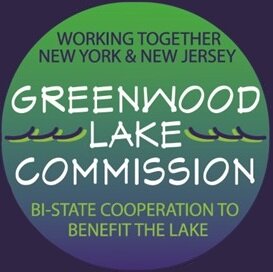Dredging Info
There is an excessive amount of muddy sediment that has been accumulating in the bottom of Greenwood Lake since it was created. This sediment was transported to the lake from the surrounding watershed.
Stormwater runoff is the term given to excess rainwater that has not seeped into the soil. The force of stormwater runoff breaks up soil and causes individual soil particles to detach or erode. The soil particles are then deposited into our lakes and streams.This process is called sedimentation.
Sedimentation causes . . .
Aesthetic Problems: Greenwood Lake is often cloudy and brown due to the sediments that have been deposited in the lake. As time passes, the lake becomes more and more unappealing.
Water Quality Problems: Chemicals and nutrients such as phosphorus and nitrogen from fertilizer and septic runoff adhere to soil particles and create water quality problems when they are deposited in lakes. These excessive nutrients stimulate the growth of aquatic plants and algae.
Ecological Problems: Increased sediments will significantly alter the ecological balance of lakes. Sediments clog fishgills and smother fish eggs and other forms of aquatic life. Sediments reduce the amount of sunlight penetrating lakes. This affects water temperature and other ecological processes as well.
The Greenwood Lake Commission has been working with local, county, and state governments to address stormwater runoff and sedimentation through the implementation of structural changes to storm sewers and the development of various ordinances. These projects are aimed at reducing new sources of sediment in the lake.
To address excess sediment already in Greenwood Lake, the Commission feels that some of its shallower sections need to be dredged. Dredging sediment from the lake bottom will benefit those living and enjoying recreational activities on Greenwood Lake. It will also improve the ecology and fish habitat of this popular resource. Specifically, dredging will:
- Reduce the amount of sediments as well the nutrients and chemicals attached to them
- Increase the depth and capacity of the lake, thereby improving boating and other recreational opportunities
- Remove sediments that create a breeding ground for harmful bacteria
- Improve the appearance and ecology of our lake
- Improve the economy of the businesses around the lake and businesses that save the lake
- Real estate values for residential and business properties will increase, which will increase tax revenues for West Milford and Warwick.
As part of a grant from the United States Environmental Protection Agency, the Commission hired HydroQual Inc., through a bidding process to complete a dredging feasibility study which will be used to develop a dredging plan and obtain funding for the project.

